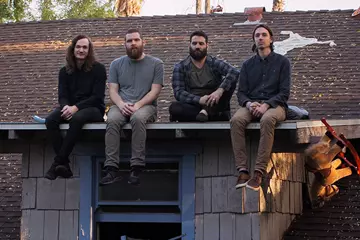How do you mourn an immortal?
It was a long-running (semi) joke that musical icon David Bowie was something more than human, but the real world result of that bit of rock'n'roll mythologising is that news of his death has proved to very difficult to deal with. Not Bowie. Not now. Not at the relatively young age of 69. Mere humans succumb to liver cancer. Pansexual alien pop gods do not.
But the man born David Robert Jones in Brixton on January 8, 1947, did die, on January 10, 2016, days after releasing Blackstar, the album that now serves as his epitaph. The album's producer, long-time collaborator Tony Visconti, has confirmed that this was intentional; Bowie wished to put the final punctuation mark on his own life, to definitively sign his name at the bottom of the canvas. As a final public act, as an artistic working, it is devastatingly powerful.
And so we mourn.
But for whom? We, as fans, cannot mourn Bowie on a personal level; we simply did not know him personally. More, the man's mercurial public persona means we all cry for a different Bowie. Is your Bowie a red-haired folk troubadour, a blue-eyed soul singer, a slick-suited pop star? Is he Aladdin Sane, Major Tom, Ziggy Stardust, The Thin White Duke? Is he an Outsider, a Lodger, a Pin Up, a Goblin King? Who was your first Bowie?
He was all those things, of course, and a father, husband and friend. He was also, whatever face he wore, the patron saint of the weird and disenfranchised. Not in any mean or self-loathing manner; Bowie's lasting legacy is the lesson that not only can we accept and even love our own strangeness, we can let it elevate us. Countless teenagers, questioning their sexuality, their psychology, their very humanity, have cleaved to his music through the long, lonely adolescent night and found something comforting. Something that said difference was not to be derided, but celebrated. David Bowie taught us that loving the alien was, in fact, loving ourselves.
Don't miss a beat with our FREE daily newsletter
Bowie leaves behind an incredible body of work, encompassing 25 studio albums and countless side projects, one-offs, film appearances and artistic explorations, waiting for the next generation of strange visitors to discover them - and they will. There will be never be a time when nobody is listening to David Bowie. There will never be a time when his singular example of self-acceptance and self-invention will not be needed.
But there will never be another David Bowie, and we were lucky to have him.
Originally published in X-Press Magazine.















